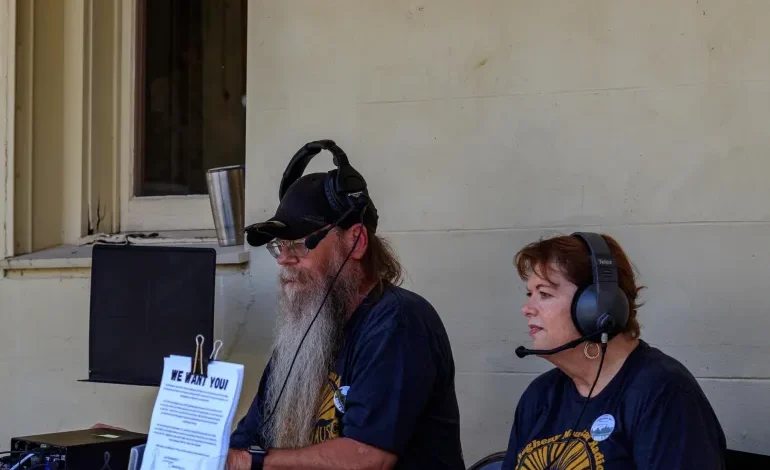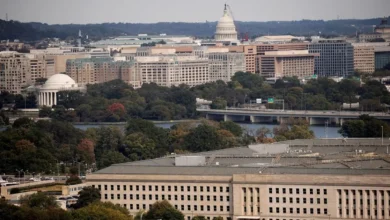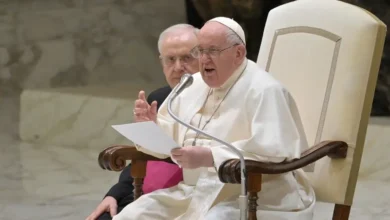As public media funds officially dry up, local radio stations struggle

For Scott Smith, the cuts to the Corporation For Public Broadcasting are existential.
He is the general manager of Allegheny Mountain Radio, which he runs alongside programme manager Heather Nidly. The funds were slashed as part of United States President Donald Trump’s vast tax cut and spending bill that was signed into law in July. As a result, the station, which has been on air for more than four decades, lost 65 percent of its funding.
The rescissions bill that Trump signed allows the US Congress to claw back funding that had been approved and pulls back $9bn in funding, including $1bn from the Corporation for Public Broadcasting (CFB). At the end of September, those funds officially dried up.
The money had already been allocated by the previous Congress to fund public media for 2026 and 2027. Now stations are scrambling to find ways to fill the holes.
The Trump administration has gone after news organisations that have presented any critical coverage of him, including the Wall Street Journal, after its coverage of a suggestive letter purportedly written by Trump to the late sex offender Jeffrey Epstein for his birthday. In September, he tried to sue The New York Times for allegedly being a “virtual mouthpiece” for the Democratic Party.
His leverage over public media is significant because that is partially funded by federal tax dollars. The White House first signed an executive order to defund public media in May. That was quickly blocked because funding decisions are made by Congress, not the White House.
Next, Trump pressured Congressional Republicans to put forth the rescissions bill that fulfilled the mission of his previous executive order. To justify his call for cuts, in May, the White House released a list of segments from NPR and PBS programmes that it says had liberal bias, as it included many segments about the experience of the trans community.
The White House also cited a report alleging PBS favoured Democrats. That report was from the openly partisan Media Research Center, which has a stated goal to promote conservative values.
A key, but overlooked, problem with the cuts is that they overwhelmingly harm stations that do not even cover the White House or much national politics at all.
Allegheny Mountain Radio (AMR) is one of those stations. Comprising three affiliates for three counties straddling the West Virginia and Virginia border, on their airwaves, listeners will find gospel, folk and country music, as well as coverage of local football games and town hall meetings.
AMR carries NPR’s national newscast and, more importantly, serves as the on-the-ground voice when severe weather hits.
Unlike in other regions of the county, there is no other alternative to get real-time local news. The nearest local news station is several hours away, separated by winding country roads. When there’s severe weather, AMR is the only way locals get vital information like road closure announcements because of floodwaters.
“Just a few years ago, we had a deluge of rain coming down and flooding parts of the county. At that point, when something like that happens, the radio station really is the only way to get that information out quickly to our listeners and let them know where it’s happening,” AMR programme manager Nidly told Al Jazeera.
AMR is in a part of the country where cellphone signal and wireless access are sparse because of its proximity to what is called the National Radio Quiet Zone (NRQZ) near the Green Bank Observatory, which limits the use of radio frequency and other signal methods so that they do not interfere with their equipment. This requires special equipment to point radio signals away from the observatory.
With the region’s low population density, there’s a limited business case for a station. But there is a case for public service. The community depends on AMR for emergency alerts – even on a personal level. During major storms, Smith said, people have shown up at their stations when their phones stopped working, asking if AMR could broadcast a message to let their family and friends know they were safe.










